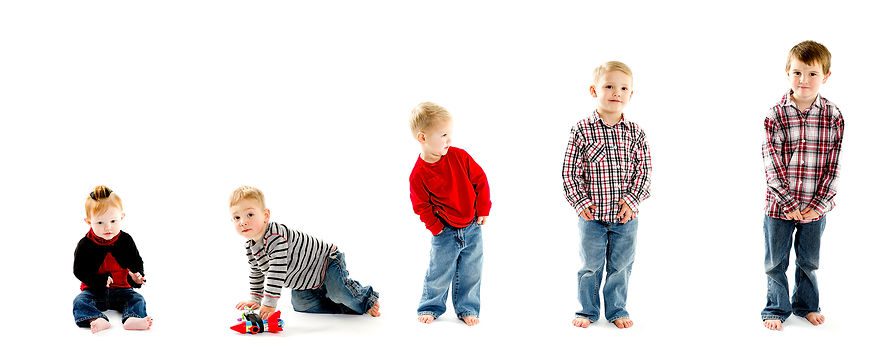Toys by Age Groups
Toys are essential for the cognitive, physical and emotional development of children. They help promote problem-solving and hand-eye coordination, as well as creative thinking skills. As such, it is important for parents to choose toys that are appropriate for their child’s age and developmental needs.
Let’s discover how to select suitable toys for different ages and the benefits these toys can provide.


Baby Toys (1-12 months old):
Babies can learn through their senses, so they need toys that are visually and tactually stimulating. Brightly colored, high-contrast toys can help enhance their visual perception. Soft toys with different textures, shapes, and sounds can help them explore through touch and sound. Mobiles, crib mirrors, and other hanging toys can encourage them to reach out and grasp objects, promoting their hand-eye coordination.
Some good examples include:
- Rattles
- Soft plush animals
- Musical toys
- Teething rings
- Crib mobiles
Toddlers (1-2 years old):
At this age, children are starting to develop their motor skills and explore their surroundings. They enjoy toys that they can manipulate, such as toy cars, puzzles, and blocks. Toys that encourage imaginative play, such as dolls, stuffed animals, and play kitchens, can help develop their creativity and social skills. Additionally, toys that play music or have buttons and switches can help develop their cognitive and fine motor skills.
Some recommended toys include:
- Push and pull toys
- Shape sorters
- Stacking rings
- Balls
- Busy boards
- Bath toys
Preschooler (2-3 years old):
As their motor skills improve, children become more interested in outdoor play and gross motor activities, such as tricycles, balls, and climbing structures. Age-appropriate books and puzzles can also help develop their cognitive skills and encourage their love of reading. Toys that can be used for creative and imaginative play, such as building blocks, dress-up clothes, and play dough, can also be beneficial for their social and emotional development.
Some recommended toys for this age group include:
- Play kitchen sets
- Building blocks
- Board games
- Play tunnels
- Puppet sets
- Painting and drawing sets
Kindergarten (3-4 years old):
Children are developing more complex play skills and interests at this age. They enjoy pretending and role-playing, so toys such as play kitchens, dolls or action figures, and dress-up clothes can be great for their imaginative play. Puzzles and board games that use simple counting or matching skills can help develop their cognitive skills. Also, toys that promote physical activity, such as skipping ropes or Hula-Hoops, can encourage their gross motor skills and help burn off their energy.
Some recommended toys include:
- Puzzles
- Jigsaw puzzles
- Magnetic letters and numbers
- Science experiment sets
- Play-doh sets
- Construction toys such as Lego
- Musical instruments
Primary School Age (4-5 Years Old):
Children this age are often curious and fascinated with exploring the world around them. Toys that allow them to experiment and explore, such as scientific kits, magnifying glasses, and simple construction sets, can help develop their cognitive skills and encourage their natural curiosity. They enjoy playing with friends, so group games and sports such as tag, hide-and-seek, and mini-golf can encourage social interaction and teamwork.
Some recommended toys include:
- Board games
- Cooperative games
- Musical instruments
- Reading books
- Soccer balls/basketballs
- Play tents
Children Above 5:
Children at this age usually have developed a wide range of interests and hobbies, and they often have the ability to focus on more complex tasks for extended periods. At this age, educational and scientific toys like Coding Sets and Science Kits can help improve their problem-solving and critical-thinking capabilities. Also, toys that allow them to build and construct, such as Lego or other building sets, can enhance their creativity, spatial awareness, and hand-eye coordination. Based on strategy and logic, board and card games can improve their critical thinking and analytical skills. Children at this age are also learning social norms and emotional intelligence, which makes Board games that encourage social interaction helpful in therapeutic and emotional development.
Some recommended toys include:
- Science experiment kits
- Robotics kits
- Remote-control cars or drones
- Model kits
- Art sets
- Board games such as chess or monopoly
To conclude, it is important to select age-appropriate toys that can promote a child’s optimal growth and development. When purchasing toys for their children, parents must take into account factors such as safety, durability, educational value, and their child’s interests. These toys can be purchased from various retailers, including department stores, specialty toy stores, online retailers, or e-commerce websites. By selecting appropriate toys based on their child’s age and developmental needs, parents can support their cognitive, physical, and emotional development.
